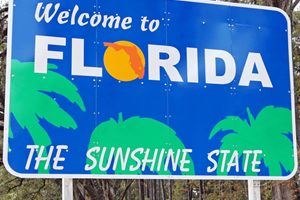
Previously on this blog, we've reported on the worse-than-usual allergy season that experts say is already underway in many parts of the United States and likely to last longer than it has in years past. Certain areas are getting hit particularly hard already, and one of them is northern Florida.
According to the Tallahassee Democrat, a local media outlet, warm weather in the traditionally cooler months of December, January and February initiated a premature pollen season that is impacting residents of the community.
On a scale of zero to 12, the pollen count in Tallahassee has averaged an eight, reaching a high of 10.8 on March 25. Even out-of-state students studying at Florida State University (FSU) whose allergies may have remained dormant for years are at risk of having their symptoms exacerbated by the abundance of allergens in the air, reports the source.
"It's been a very busy allergy season," Rachael Young, a registered nurse at FSU University Health Services' Allergy Clinic, told the Tallahassee Democrat. "Our allergy clinic is actually growing in number of patients. We usually see between 150 and 180 patients, but our numbers are increasing because of the increase in pollen. This season's increase in pollen has made this one of the worst allergy seasons by far."
If you reside in Florida or anywhere else where pollen counts are particularly high, there are other actions you can take to reduce your symptoms this spring and summer – in addition to seeing a specialist and using any medication you've been prescribed, of course. You may want to consider investing in a whole house air purifier, which removes allergens directly from the air and makes it easier for you to breath inside your home.









